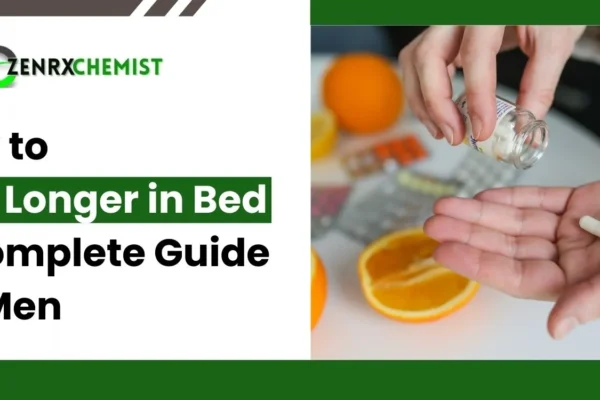Blog
25 Common Signs of High Testosterone in a Man
Introduction
Testosterone is the primary androgen hormone in men, primarily produced in the testes. It plays a critical role in male sexual development, muscle mass, red blood cell production, mood regulation, and overall vitality. While optimal levels vary, maintaining hormonal balance is key to long-term physical and mental health.
What Is Considered High Testosterone?
High testosterone, or hyperandrogenism, refers to abnormally elevated levels of circulating testosterone in the blood. In adult males, total testosterone levels above 950–1000 ng/dL may be considered high, depending on lab reference values. It’s important to differentiate between physiological peaks (e.g., morning levels) and consistently high levels.
Common Signs of High Testosterone in Men
Elevated testosterone can manifest in several physical, emotional, and behavioural ways. Below are 25 clinically observed signs across four key domains:
Physical Symptoms:
Increased Muscle Mass and Strength
Higher testosterone enhances protein synthesis, leading to visible hypertrophy and improved athletic performance, especially in resistance training individuals.
Reduced Body Fat
High T levels increase metabolic rate and reduce fat deposition, particularly in the abdominal region.
Oily Skin and Acne
Testosterone stimulates sebaceous gland activity, often resulting in increased oil production and acne, especially on the back and shoulders.
Hair Loss (Male Pattern Baldness)
Excess testosterone, particularly dihydrotestosterone (DHT), contributes to androgenic alopecia—receding hairlines and thinning at the crown.
Increased Facial and Body Hair Growth
An overexpression of androgens often leads to thickened beard growth and body hair in previously sparse areas.
Gynecomastia (Paradoxical)
In some cases, high testosterone gets aromatized into estrogen, causing breast tissue enlargement—a common concern among bodybuilders on testosterone therapy.
Enlarged Prostate or Urinary Frequency
Elevated testosterone may contribute to prostate growth, leading to increased urgency or difficulty with urination.
Increased Red Blood Cell Count
Testosterone boosts erythropoiesis, often seen in elevated haematocrit levels, which may raise cardiovascular strain if left unchecked.
Emotional and Behavioural Changes:
Irritability and Mood Swings
Hormonal surges can dysregulate neurotransmitter balance, contributing to increased aggression or unexpected irritability.
Increased Aggression or Risk-Taking Behaviour
High testosterone has been correlated with more dominant, impulsive, or confrontational behaviour in some clinical and observational studies.
Reduced Empathy or Emotional Sensitivity
Some individuals with high T levels exhibit decreased responsiveness to social cues or emotional expression.
Heightened Confidence and Competitiveness
Many men report increased assertiveness and drive in personal and professional environments with elevated testosterone levels.
Difficulty Sleeping or Insomnia
Hyperactivity of the endocrine system can disrupt circadian rhythms, contributing to difficulty falling or staying asleep.
Sexual and Reproductive Indicators:
Increased Libido
One of the hallmark signs, high testosterone significantly boosts sexual desire and frequency of sexual thoughts or activity.
Frequent or Spontaneous Erections
Men may experience more frequent erections due to increased blood flow and neural sensitivity.
Improved Erectile Quality
Stronger erections, particularly in the morning, may be a byproduct of increased androgen activity.
Higher Sperm Count (in Some Cases)
While testosterone supports spermatogenesis, excess supplementation may paradoxically reduce fertility via negative feedback mechanisms.
Larger Testicular Size (Occasionally)
Endogenous testosterone boosts may temporarily enlarge testes, though exogenous use can cause shrinkage due to suppressed LH/FSH.
Other Indicators and Systemic Changes:
Increased Bone Density
Testosterone plays a key role in calcium retention and skeletal strength, reducing fracture risk.
Elevated Blood Pressure
A common concern, especially among those on testosterone therapy, due to increased fluid retention and vascular tone.
Greater Energy and Reduced Fatigue
Many men report sustained physical stamina and a general increase in vitality when testosterone levels are optimal or high.
Improved Cognitive Focus
Higher testosterone has been linked to enhanced mental clarity, processing speed, and task confidence.
Faster Healing and Recovery
Anabolic activity contributes to quicker tissue repair after physical stress or injury.
Deeper Voice (in Young Men or Adolescents)
An increase in vocal cord thickening may occur during puberty or hormonal therapy.
Sweating or Body Odour Changes
Androgenic activity stimulates apocrine glands, sometimes leading to more intense body odour or increased perspiration.
Causes of High Testosterone Levels
Elevated testosterone may result from natural causes such as genetics or lifestyle (e.g., intense resistance training), but may also stem from anabolic steroid use, testosterone replacement therapy (TRT), adrenal hyperplasia, or testicular tumors. Some rare genetic disorders can also cause persistently high levels.
How Is High Testosterone Diagnosed?
Diagnosis involves serum testosterone testing, typically done in the early morning when levels peak. Total testosterone, free testosterone, SHBG, and LH/FSH levels are assessed to understand the root cause. Imaging may be ordered in cases of suspected tumour or adrenal pathology.
Potential Risks and Complications
Chronically high testosterone, especially when exogenous, can increase risks of heart attack, stroke, liver strain, infertility, sleep apnea, and aggressive behaviour. It may also suppress natural hormone production, causing long-term endocrine disruption.
Is High Testosterone Always a Problem?
Not always. Some men have naturally high levels within a healthy physiological range and remain symptom-free. However, artificially elevated levels or extreme peaks carry medical risks. Context matters—clinical oversight is essential to assess whether it’s beneficial, benign, or harmful.
Which Doctor to Consult?
For symptoms or concerns related to testosterone levels, consult an endocrinologist or urologist. These specialists can guide hormone evaluation, diagnosis, and therapy based on your specific health profile. General physicians can also initiate basic hormone testing and refer accordingly.
Conclusion
Understanding high testosterone goes beyond libido and muscle gain. While moderate elevation may be harmless or even beneficial, chronically elevated levels—especially through unregulated supplements or steroids—pose real health risks. Medical guidance is critical in assessing testosterone balance and its effects on overall male health.
FAQs About High Testosterone in Men
Can high testosterone cause mood problems?
Yes, it can lead to increased irritability or aggression in some individuals.
Does high testosterone improve performance?
It can enhance strength, focus, and stamina, but also brings potential side effects.
Can testosterone affect fertility?
Yes. Excessive levels can suppress natural sperm production.
How is testosterone level measured?
Through a blood test measuring total and free testosterone.
Are natural supplements safe?
Not always. Over-the-counter boosters can disrupt hormonal balance. Always consult a doctor.







